Happy Saturday, friends. This is a sweet morning for me; after a long week of finals, followed by some frantic catch-up on the work items I pushed aside while I was studying for finals, I’m finally done with my first semester of grad school. I’m currently enjoying a quiet morning of sipping coffee and reading by my Christmas tree. I do my best not to careen through the holidays, as I cherish this time of year. But like most people, I find myself rushing through December in a blur. I’m trying to slow down considerably in the next two weeks, catching up quietly on my work, reading a little for pleasure, and spending some quality time with Steven. And of course, I look forward to plenty of cooking and baking, now that school’s out.
Here are some articles and recipes that have caught my eye this morning.
First, a perfectly warming, spicy dessert drink to sip between now and Christmas (and into the new year): vegan champurrado (Mexican hot chocolate atole) from Alanna of The Bojon Gourmet.
There’s nothing better than a simple, nourishing grain salad in the winter. I’m loving this simple yet colorful quinoa, grapefruit, and almond salad from Sarah of A House in the Hills–simply substitute maple syrup for honey to make it vegan!
I can’t think of a more adorable or festive edible gift than these little cranberry orange holiday cakes from Alexandra of Occasionally Eggs. I especially love the sweet maple citrus glaze, and if you read the whole post, Alexandra has some wise and important thoughts on self-care through the holidays, too.
Going to a holiday party this week? Bring these awesome, savory stuffed mushrooms from my friends at Fettle Vegan, and watch in delight as they disappear.
These vegan, caramel-stuffed double chocolate cookies from Raquel of My California Roots look too good to be true. I’d say they’re great for edible gifts, but if I made them I’d probably want to keep them all to myself.
And finally, a bonus recipe in honor of the holiday week. I love Jenny Mustard’s colorful vegan Christmas rice porridge with tahini-baked pears! I’d never have thought to pair pears with tahini, but I basically love tahini on anything and everything, so why not. And I also love the idea of using a thicker rice for this porridge; I’ve used basmati rice in porridges in the past, but I’ll have to try using arborio sometime soon.
Reads
1. One of the most meaningful parts of my RD education this semester was becoming involved with the Tisch Center for Food Education and Policy at Teacher’s College. The Tisch center cultivates research about connections between a just, sustainable food system and healthy eating. It translates these findings into actionable, accessible recommendations for educators, policy makers, and community advocates, and it focuses particularly on schools as levers for change. Through my work with Tisch–which consists primarily of social media outreach and communications–I’m learning so much about the food system, nutrition education, and nutrition policy. It’s invaluable exposure, and it means that I’m much more aware of food policy issues in the news.
This week, The White House published a major study analyzing the longterm effectiveness of its Supplemental Nutrition Assistance Program, otherwise known as SNAP (or more commonly as food stamps), which is aimed at reducing food insecurity. The study highlights a growing body of research that finds that children who receive food assistance see short-term and long-term improvements in health, academic performance, and economic self-sufficiency. Unfortunately, the report also suggests that benefit levels are often inadequate to sustain families through the end of the month—resulting in high-cost consequences, such as a 27 percent increase in the rate of hospital admissions due to low blood sugar for low-income adults between the first and last week of the month, as well as diminished performance on standardized tests among school age children.
You can read the report in its entirety here, and a quick summary here. On the same topic–and a little less dense–is The Washington Post‘s recent expose of what happens when a family runs out of food stamps. There are particularly strong implications for diabetics.
2. An important article, written by Tom Jacobs, about how under-publicized the connections between animal agriculture and climate change remain. In a recent study, 556 American and 527 Dutch citizens were asked questions about energy, the environment, and food. Participants read a list of six activities and were asked to indicate whether they considered each of them an effective means of combating climate change. The activities included “Eat less meat,” “Buy organic foods,” “Drive less,” “Save energy at home (e.g., turning thermostats down),” and “Install solar panels on my home.” Finally, participants were asked to indicate how willing they were to make that particular lifestyle change.
The results are dismaying: only 12 percent of the Dutch, and six percent of the Americans, correctly identified lower meat consumption as an effective way of lowering greenhouse gas emissions. Eating less meat came in last among the six options in the American sample, and second from the bottom among the Dutch. Clearly, more education is needed about the connections between cattle farming, animal agriculture, and climate change.
Here’s the good news: participants from both countries indicated more willingness to reduce meat consumption as their perception of its efficacy increased. The article concludes, “This suggests spreading the word about its environmental benefits could, over time, shift eating patterns in a positive way.”
3. Another interesting article, this one in Quartz, on agriculture. It begins by asserting that agriculture is a field of study that is dominated by complex ethical questions:
“Researchers have land rights and animal welfare to consider as well as the risks and benefits that a practice or technology may pose to people and the environment. There’s the matter of food security and the best way to feed growing populations. Then there are the debates about how to label organic or genetically-engineered food, and whether those labels are necessary or meaningful. And as in any area of research, there is the potential for scientific misconduct and conflicts of interest.”
In light of this, the article goes on to suggest that bioethics might have a place in agricultural studies in higher education. There has been some resistance to this idea, in part because scientists fear that people who are not trained in the sciences may not grasp the nuances necessary to understand agriculture and its quandaries. But the article insists that the role of bioethicists as program facilitators would simply be to encourage discourse, not to directly inform research:
“I don’t think ethicists should be listened to as authorities,” Clark Wolf, director of bioethics at Iowa State University, tells Quartz. “I think they should be listened to as sources of thoughtful argument, and thoughtful analysis of problems. The most interesting issues—the reason they are interesting is because people disagree.”
Ethicists could also help anticipate the public’s reaction to research. Scientists were famously unprepared for the backlash to GMOs, for example, but an ethicist might well have foreseen the public’s skepticism over a technology that didn’t have an immediately obvious upside for them.
Moreover, ethicists could help researchers identify and avoid potential conflicts of interest when research funding is coming from big businesses or commodity groups. Research suggests that even small gifts from drug companies can influence doctors’ prescription habits, and much of the public automatically distrusts research that is funded by big companies. Agricultural scientists “are at somewhat of a disadvantage because they haven’t been as sensitized to [conflicts of interest] as the medical side has,” says Streiffer.
I’m not sure what the role of a bioethicist in an agricultural studies program would look like, but certainly the integration of bioethics into medicine provides some kind of a precedent. Overall, I think that the article makes a strong and interesting case.
4. You may already have seen this opinion piece in The New York Times, calling for a “Part Q”–Q for quality–in medicare benefits. The author, Katy Butler, uses the experience of her father’s final years and his death as a means of speaking up about the fact that Medicare “…pays poorly for primary care and supportive services except within hospice. Small problems become big, and then Medicare covers an unending cycle of expensive emergency room visits, hospital stays, and aggressive Hail Mary treatments that can do more harm than good.”
Her Part Q would “help me make the transition smoothly from useful curative approaches to those focused on sustaining my quality of daily life, to “comfort care only” and, I hope, a gentle death at home. Doctors, nurses and home health aides would come to the house for as long as I needed them. I’d get up to two years of hospice benefits, rather than the current arbitrary six months. And I’d save Medicare money.
To qualify for Part Q, I would promise, upfront, to forgo medical treatments that evidence shows are outrageously expensive, not cost-effective, painful to endure, and likely to extend my life, if at all, by only months.”
It’s an interesting and passionate piece, written with conviction and supported by personal experience as well as research. Worth reading.
5. Finally, I so loved this interview with Evelyn Witkin, who was recently awarded the Lasker Basic Medical Research Award for groundbreaking work into DNA repair. Much of the interview focuses on the fact that Witkin’s career began in a time when there were many barriers to women entering the sciences. When asked how she did it, Witkin notes,
“I think it, in part, was because I had a lot of support from men. My late husband, Herman Witkin, an experimental psychologist, was a real feminist. He believed my career was as important as his. For 10 years, he commuted four hours every day to his work in Brooklyn so that I could keep mine at Cold Spring Harbor. When our second child was an infant, he had a sabbatical. He wrote a book with the baby in his lap most of the time.
He loved being home with the children that year. He said he got so close to those kids and that it was the best thing ever.”
She also says credits her boss, Vannevar Bush:
“When I was pregnant with my first child, he came to my lab and said it was important to make scientific careers possible for women. What did I need? I told him, maternity leave and to return only part time. He said, “Done, and we’re not going to cut your salary because I know you’re going to do a full-time job.” That act alone made it possible for me to stay with my research.”
This is such a good reminder that, in order for women to trail-blaze and continue making strides professionally–whether in male-dominated fields or not–it’s important for them to have both personal support and the support of employers who create equitable workplace environments. Witkin’s humility and dedication to her field are very inspiring.
Some pretty interesting reads this week, I think! I hope you’ll enjoy them, too. And I look forward to tuning in again on Monday, with a new holiday recipe for you all. Have a great weekend.
xo
You might also like
The first half of this past week flew by, a blur of class and reading and clients and work. The second half screeched to a halt with the arrival of a fall cold and a middle ear infection, which forced me to slow down and spend most of yesterday curled up on my sofa. I was supposed to travel to DC today for my cousin’s baby shower, but, with my first set of midterms coming up this week and more travel on the horizon…
Hope everyone’s been staying warm and easing into 2018 gently. My New Year’s Eve plans were quiet; they involved yoga and meditation at the turn of midnight, followed by bed. None of that happened. My mom and I unexpectedly spent NYE in the emergency room. It wasn’t really an emergency; we knew we were being cautious when we went for her to get checked out. But of course it was a great relief to be discharged with the assurance that everything was OK. It…
Welcome back to weekend reading, friends. Seems like just yesterday that I posted my last roundup; this week flew by! There will be an onslaught, no doubt, of Valentine’s Day themed recipes this week–lots of chocolate, lots of raspberries. There may even be one such recipe from yours truly. But until we get there, here are the recipes that I fell in love with this past week. I’ve seen many recipes for breakfast polenta, but — in spite of the fact that I love…
Happy Saturday, folks! I’m getting weekend reading up a little early today in preparation of a busy two days ahead of me. This week has flown by, a combination of book excitement, some new nutrition client sign-ups, and my first set of exams for school around the corner (boy, those arrived fast). But I haven’t been too busy to notice a few wonderful recipes from fellow bloggers. Baking season is here, and Nicole’s lovely masala chai carrot muffins look like a perfect way to…


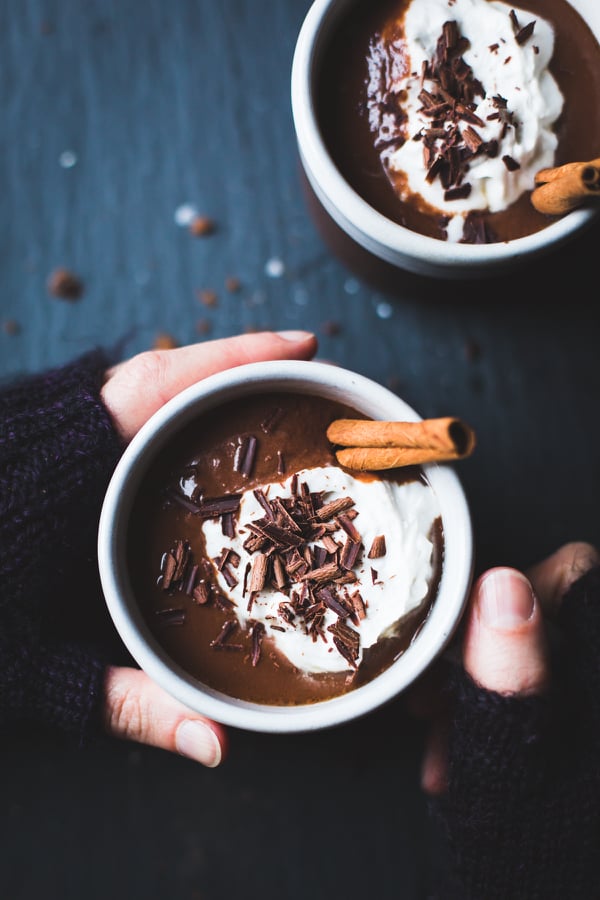
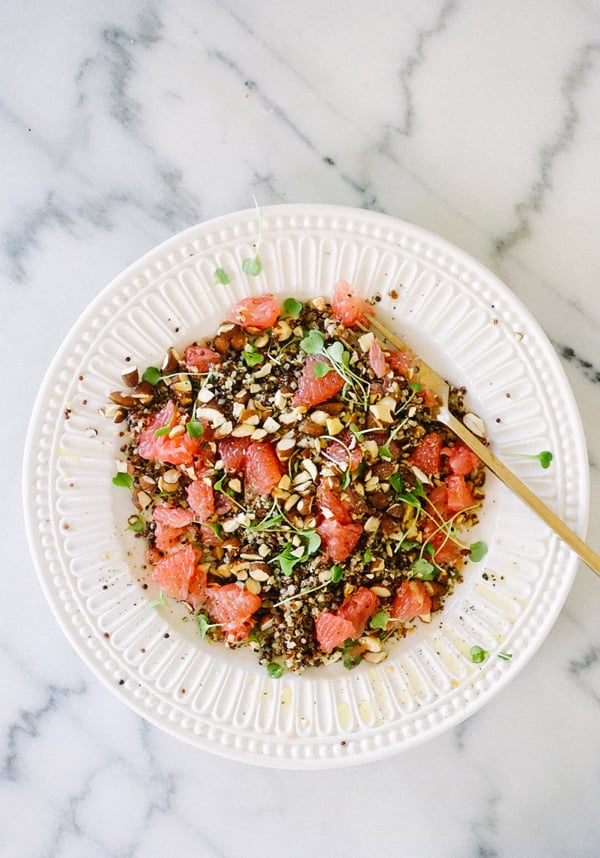
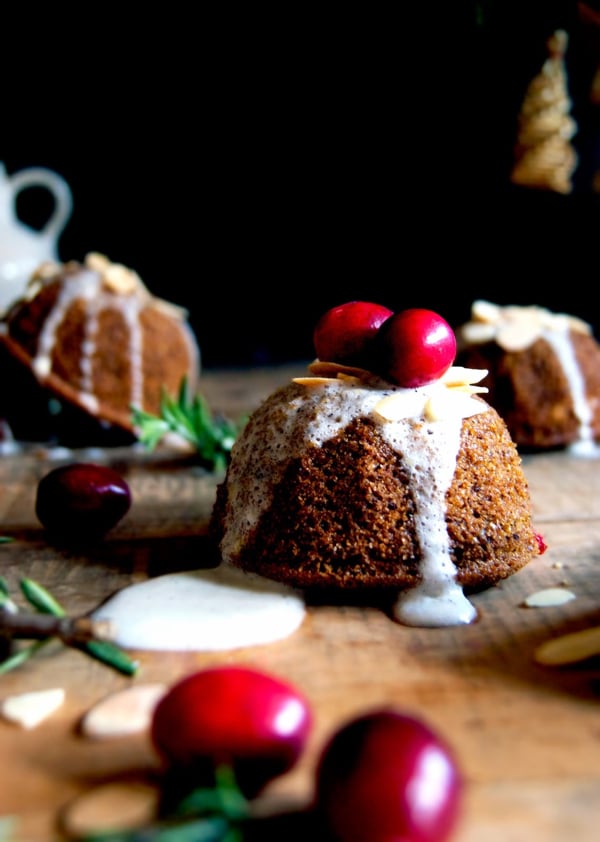
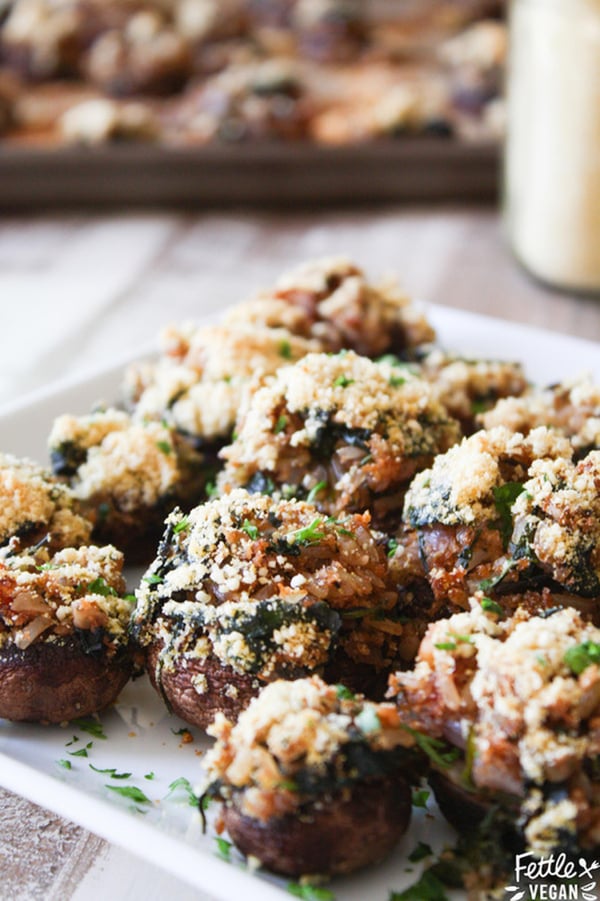
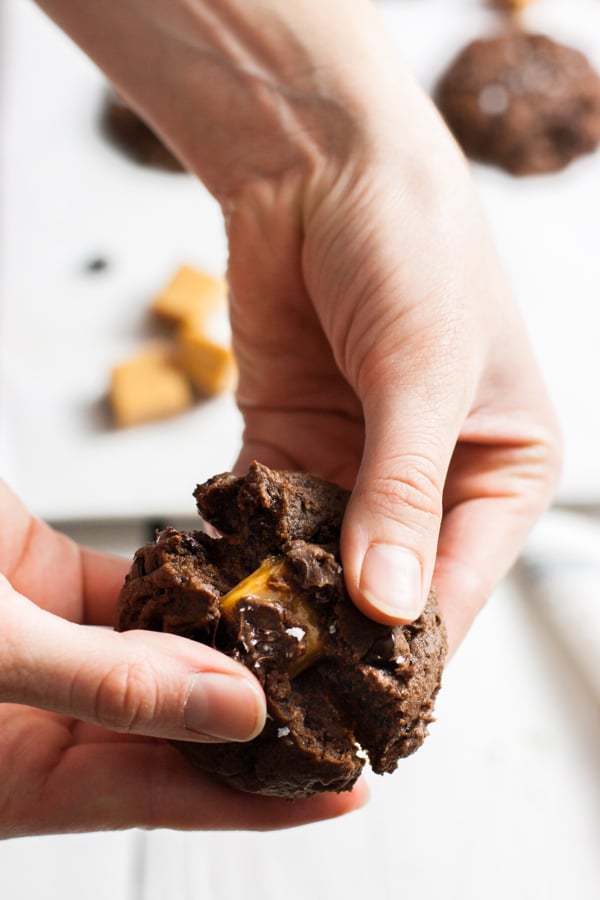

Leave a Comment
I spotted Alana’s hot chocolate recipe too and am delighted to find Jenny’s recipe here.
As for the articles, I am saddened that so few people see the connection between meat consumption and environment :(. But change is a comin’ right :)?
Thank you as always for sharing thought provoking content.
Wishing you an awesome festive period.
Kimberly
That chocolate cookie with caramel in the middle looks heavenly! I have to try that after Christmas.
I found the article by Tom Jacobs quite disturbing. I can’t believe that so few people know that meat consumption are the best way to lower the greenhouse gas emissions! That’s just way to few people….
However, I am really excited to read the interview with Evelyb Witkin 🙂
All these look beautiful! And since it’s the weekend, I will definitely be spending time reading ALL of them! 😉
Congrats on finishing your first semester dear! I just took my last final of the semester today! Feels good to know there’s a break now! xoxo
No kidding! Have a fabulous holiday break, Rebecca xoxo
Thanks so much for including me, Gena! The roundup looks great, and I love how you’ve included great articles to read, too. 🙂